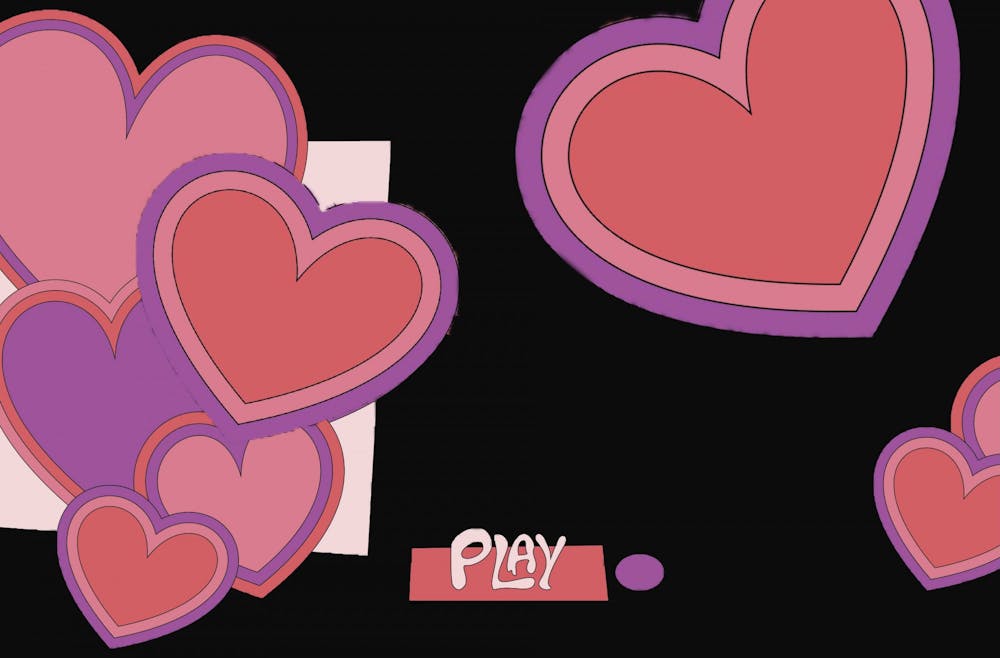Scrolling through my playlists is an all–consuming experience.
I parse through the titles to the left of my screen. Some are more straightforward than others, entitled “summertime” or “by the pool." I’d like to think I captured the minutiae of these moments in music, like the sand stuck under my fingernails and the sticky breeze drifting across my skin. Other titles are more abstract. They are references to feelings I can’t verbalize and sentiments I refuse to emote.
But there’s one playlist that slips through the crevices, falling somewhere in between the realms of the uncomplicated and the philosophical. “[i carry your heart with me(i carry it in],” a playlist named after the incomparable E. E. Cummings sonnet that (in my opinion) remains the greatest declaration of love to date. The playlist is a non–exhaustive anthology of varying answers to the question “If you had to tell someone you loved them with one song and absolutely nothing else, what song would it be?"
I created the playlist in April of last year, though I’d been asking my friends the question for a while before then. While I can’t recall the precise moment of inception, I imagine it came about around my 24th viewing of Joe Wright’s Pride and Prejudice. I watched Keira Knightley and Matthew Macfadyen float through Netherfield Hall, exchanging witty one–liners as their hands lingered on the cusp of contact. In that three–minute scene, I became acutely aware of the gravity of the unspoken. The film score, a baroque–inspired violin track titled “A Postcard to Henry Purcell," swelled to a crescendo during prolonged glances and intense stares. In the absence of words, the composition made the characters’ feelings knowable.
I think about that scene a lot, but I think about that track even more. To me, the composition signified what love meant: consummate knowability even in a void of silence. Of course, it helps that I associate that song with a canonical work from the Romantic period. I think my truest conception of love still exists within the enchantment of the Victorian setting, amidst stolen glimpses and other anachronistic tropes.
As the playlist has grown, I’ve had the opportunity to try and ascribe definitions of love to my friends that have contributed to it. The playlist is the window I use to peer into the ensemble of characters in my life. Nikola, who chose Frank Sinatra’s “The Way You Look Tonight” as an homage to the classic definition of love—slow dancing next to the warm glow of a fireplace. Young Min, who picked “Married Life” from the film Up, invoking the poeticism of holding the same hand till the day you die.
I’ve also learned more about the way my friends perceive music. Some favor lyricism, embodied in Anchita’s selection of Rihanna’s “Close to You," a track verbalizing the beauty of sustained emotional proximity. Mehek, who fixated on the lyrics of “Kiss Me" by Sixpence None the Richer, coloring her life with the rose–gold wash of a romantic comedy.
On the other hand, others preferred the absence of words altogether. Though the symphonies in Hans Zimmer’s “Planet Earth II Suite” bear no direct connection to the theme of love, the orchestral suite fills the room with a sense of wondrous fantasy. I remember asking Arjun why he chose it—he told me that words couldn’t do it justice. For some of my friends, music was able to embody “I love you” better than the phrase ever could.
A lot of choices indicated a preference for idealistic conceptions of love, the kind mirrored in old films and TV shows. These were exemplified in songs like “Moon River” from Breakfast at Tiffany’s and “Can’t Take My Eyes Off You” from 10 Things I Hate About You. Some people in my life have a penchant for songs reminiscent of romantic gestures, for boomboxes held a window and grand declarations at the top of a spiral staircase. There’s a common conception that hook–up culture and Tinder have killed the hopeless romantic. As it turns out, the romantic hero may be due for a revival.
Concurrently, I’ve learned that these choices are a reflection of personalities. Two songs on the playlist are accredited to Megan, whose level of introspection and thoughtfulness left her unable to choose between two distinct tracks. Andira, on the other hand, picked Alicia Keys’ “If I Ain’t Got You” almost instantaneously, because Keys’ conception of romance and commitment informed her friendships on a daily basis.
It may seem trite to imbue a Spotify playlist with this level of meaning. However, given the magnitude and pervasiveness of music, I believe that the playlist is a genuine reflection of deep sentiment.
In a way, I am able to embody the axiom of E. E. Cummings’ original poem. I carry a piece of my friends’ heart with me, always. I carry it in a playlist.







